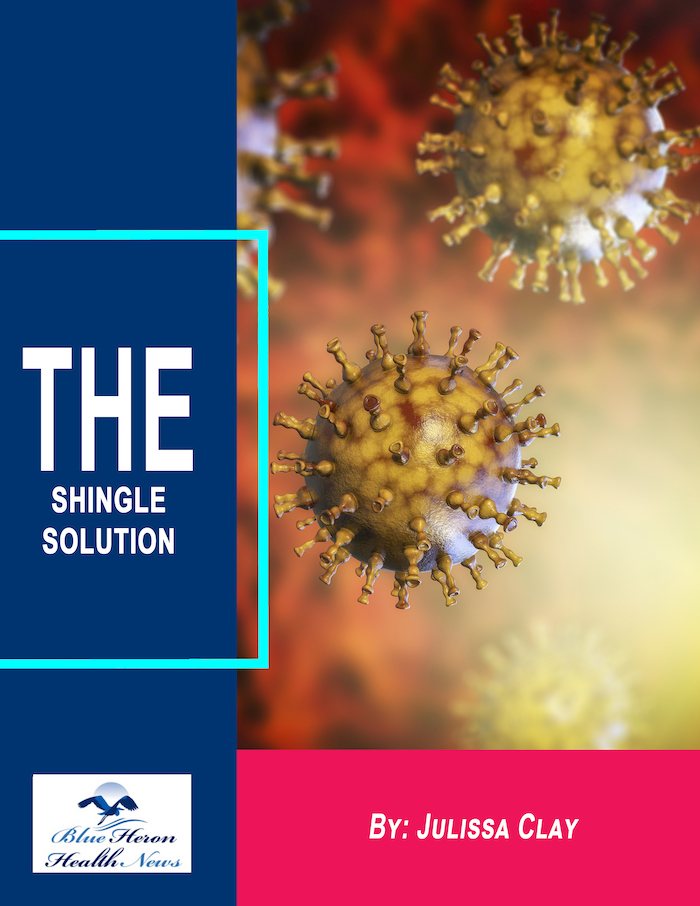
The Shingle Solution™ By Julissa Clay This eBook includes a program to treat the problem of shingle naturally. The author of this eBook, Julissa Clay, a practitioner in natural health, has killed the shingles causing virus completely to overcome the problem of PHN or Postherpetic neuralgia, one of the common complications caused by shingles. This program helps in melting PHN in a few weeks and make shingles a forgotten nightmare.
How can one cope with the emotional impact of shingles?
Coping with the emotional impact of shingles is an important aspect of managing the overall condition. Shingles, caused by the reactivation of the varicella-zoster virus, can not only cause physical pain and discomfort but also lead to significant emotional and psychological stress. The intense pain, visible rash, and potential complications can trigger feelings of anxiety, depression, frustration, and isolation. Here are some detailed strategies to help cope with the emotional impact of shingles:
1. Understanding the Condition
Education and Awareness:
- Learning about shingles, its symptoms, causes, and treatment options can empower individuals and reduce fear and uncertainty. Understanding that shingles is a common condition and that its symptoms are manageable can help alleviate anxiety.
Knowing the Prognosis:
- Shingles typically resolves within a few weeks, though the duration can vary. Knowing that the condition is temporary and that there are effective treatments available can provide reassurance.
2. Managing Pain and Physical Symptoms
Effective Pain Management:
- Adequate pain control is crucial for emotional well-being. Chronic or intense pain can lead to irritability, depression, and anxiety. Working closely with healthcare providers to develop a comprehensive pain management plan, which may include antiviral medications, analgesics, and topical treatments, can help mitigate the emotional toll of pain.
Minimizing Itching and Discomfort:
- Using cold compresses, calamine lotion, and oatmeal baths can help soothe itching and discomfort, which can otherwise lead to frustration and distress.
3. Emotional Support and Communication
Seek Support from Loved Ones:
- Sharing experiences and feelings with friends, family, or a partner can provide emotional relief and reduce feelings of isolation. Loved ones can offer practical support and comfort during difficult times.
Join Support Groups:
- Participating in support groups, either in-person or online, can provide a sense of community and shared understanding. Connecting with others who are experiencing or have experienced shingles can offer valuable insights, encouragement, and emotional support.
Professional Counseling or Therapy:
- Speaking with a mental health professional, such as a counselor or therapist, can be beneficial. Therapy can provide a safe space to explore and process emotions, develop coping strategies, and manage anxiety or depression.
4. Stress Management Techniques
Mindfulness and Meditation:
- Mindfulness practices, including meditation, can help reduce stress and promote relaxation. Focusing on the present moment can help manage negative thoughts and reduce anxiety related to the condition.
Deep Breathing Exercises:
- Deep breathing exercises can help calm the nervous system and reduce stress. Techniques such as diaphragmatic breathing or the 4-7-8 breathing technique can be practiced regularly.
Progressive Muscle Relaxation:
- This technique involves tensing and then relaxing different muscle groups in the body. It can help release physical tension and promote a sense of calm.
Visualization and Guided Imagery:
- Visualization techniques, such as imagining a peaceful place or a positive outcome, can help reduce stress and improve mood.
5. Maintaining a Healthy Lifestyle
Regular Physical Activity:
- Gentle exercises, such as walking, stretching, or yoga, can improve mood, reduce stress, and promote physical well-being. However, it’s important to choose activities that do not exacerbate pain or discomfort.
Balanced Diet:
- A nutritious diet can support overall health and well-being. Consuming a balanced diet rich in vitamins, minerals, and antioxidants can support immune function and energy levels.
Adequate Sleep:
- Quality sleep is essential for emotional health. Managing sleep hygiene by maintaining a regular sleep schedule, creating a comfortable sleep environment, and avoiding stimulants before bedtime can improve sleep quality.
6. Positive Self-Care Practices
Engage in Enjoyable Activities:
- Engaging in hobbies or activities that bring joy and satisfaction can help distract from pain and discomfort, and improve overall mood. This could include reading, listening to music, gardening, or any other preferred activities.
Setting Realistic Goals:
- Setting small, achievable goals can provide a sense of accomplishment and control. This can help combat feelings of helplessness or frustration.
Practicing Self-Compassion:
- Being kind to oneself during recovery is crucial. Recognizing that it’s okay to rest, seek help, and prioritize one’s health can reduce feelings of guilt or inadequacy.
7. Addressing Long-Term Concerns
Postherpetic Neuralgia (PHN) Awareness:
- Some individuals may develop postherpetic neuralgia (PHN), a condition where pain persists after the shingles rash has healed. Understanding the risks and treatment options for PHN can help prepare for and manage potential long-term pain.
Regular Follow-ups with Healthcare Providers:
- Keeping regular appointments with healthcare providers can help monitor recovery progress, address any complications, and provide ongoing support and reassurance.
8. Preventive Measures for Future Health
Vaccination:
- The shingles vaccine, such as Shingrix, is recommended for older adults and those with weakened immune systems. It can significantly reduce the risk of future shingles outbreaks and associated complications.
Healthy Lifestyle Choices:
- Maintaining a healthy lifestyle with regular exercise, a balanced diet, adequate sleep, and stress management can strengthen the immune system and overall resilience.
9. Recognizing and Seeking Help for Mental Health Issues
Identify Symptoms of Depression and Anxiety:
- It’s important to recognize the signs of depression and anxiety, such as persistent sadness, loss of interest in activities, changes in appetite or sleep, and excessive worry. If these symptoms persist, seeking professional help is crucial.
Medication and Therapy Options:
- For some individuals, medication and therapy may be necessary to manage mental health conditions. This could include antidepressants, anti-anxiety medications, or cognitive-behavioral therapy (CBT).
Coping with the emotional impact of shingles involves a holistic approach that addresses both physical and psychological needs. By managing pain, seeking support, practicing stress-reduction techniques, and maintaining a healthy lifestyle, individuals can navigate the emotional challenges of shingles more effectively. It’s important to remember that it’s okay to seek help and prioritize self-care during this time.

The Shingle Solution™ if you are suffering from shingles then The Shingle Solution can be the best program for you to relieve your pain and itching by using a natural remedy. It describes the ways to use this program so that you can feel the difference after using it as directed. This natural remedy for shingles can also help in boosting your immune system along with repairing your damaged nerves and relieve pain and itching caused by shingles.